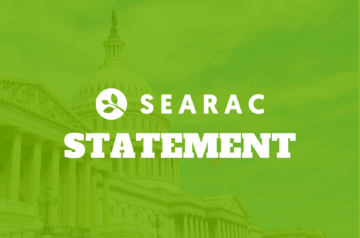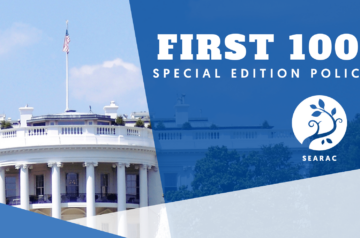Washington, DC – In partnership with Sacramento-based Iu-Mien Community Services, Southeast Asia Resource Action Center (SEARAC) recently added the Iu Mien translation of the 2020 Census questionnaire to its newly launched 2020 Census website. The US Census Bureau will be providing language guides in 59 non-English languages, including Hmong, Khmer, Lao, and Vietnamese. Census Bureau will also allow households to respond online, as well as receive assistance via phone, in 12 non-English languages, including Vietnamese.
SEARAC’s census website serves as a resource about the decennial US population count with specific information on its impact on Southeast Asian American (SEAA) communities. The site includes county-level SEAA population data and maps based on the 2010 Census, along with translated factsheets, frequently asked questions, training opportunities, social media shareables, census news, and more.
“We thank Iu-Mien Community Services for providing this first-of-its-kind resource for the 30-45,000 members of the Iu-Mien community living in the United States,” said Quyen Dinh, executive director at SEARAC. “Southeast Asian American refugee community members across the country have spent the last 45 years laying the foundation for new chapters of their lives; we and our future generations cannot afford to miss out on the federal funding, government resources, and political representation that we deserve. Our time is now.”
Every 10 years, the US government is required to count every person living in the United States through the census. The 2020 Census will begin next month, and it will determine how $1.504 trillion in federal funding will be allocated to state and local government-funded programs, such as food stamps, Section 8 housing, public health insurance, roads, schools, and more, on which many SEAA families rely. For example, 41% of Hmong, 36% of Cambodian, and 31% of Lao and Vietnamese Americans use public health coverage, totaling more than 254,000 households; furthermore, 24% of Hmong, 18% of Cambodian, 14% of Lao, and 11% of Vietnamese Americans use food stamps, totaling more than 102,000 households.
“It is critical to remove any possible barrier for participation in order for each and every person in our communities to be counted,” said Kao Thun, executive director of Iu-Mien Community Services. “That is why it was so important for us to step up and create something that the US Census Bureau does not offer. We need a full and accurate count to understand the unique needs of all our diverse, ethnic communities, including the Iu-Mien community.”
To learn more information on how the census will impact Southeast Asian American communities, visit www.searac.org/SEAAsCount.



